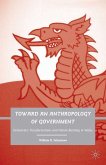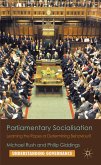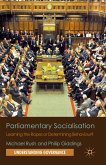The National Assembly for Wales was established in 1999, granting the people of Wales a parliament for the first time in nearly six centuries. The Assembly was intended to create a parliamentary culture of open, inclusive, and modern democracy that stood apart from the Houses of Parliament in London. Based on anthropological fieldwork, this informative book analyzes how power in Wales is legitimated and justified. William Schumann s intriguing argument makes the case that contradictory political practices exist which affirm elected officials as public representatives while also reproducing the subordinate status of Wales within the institutional hierarchies of the United Kingdom and European Union.
"Schumann has written a timely and important anthropological assessment of power in government and the roles which politicians, civil servants and other political leaders play in social and cultural change in a devolving United Kingdom. This is work at the cutting edge of political anthropology today." - Thomas M. Wilson, Professor of Anthropology, Binghamton University, SUNY








